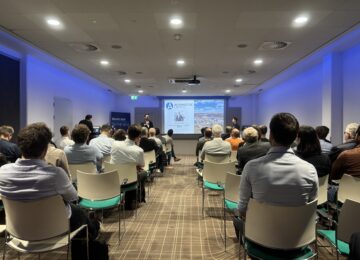Electricity Mix 2035 study: major role of long duration energy storage
Recently, on behalf of RVO, Ministry of the Interior and Kingdom Relations and TKI Urban Energy, we explored how a CO2-free electricity system in 2035 could look like. The study has two parts:
- A system analysis based on mathematical models on the Northwest European energy system and the principles of the National Energy System Plan (NPE), to arrive at an optimal energy mix with the lowest social costs;
- An analysis of the market dynamics arising from this energy mix to arrive at hourly energy prices and business cases of individual techniques (production and flexibility).
24-hour storage becomes necessary
In terms of energy storage, the study deals in particular with batteries (Li-ion and flow) and long-term storage (24-hour, including CAES). There appears to be a greater role than previously estimated for 24-hour storage in achieving a cost-effective CO2-free energy system (9 GW in the reference scenario). The researchers argue that this type of storage adds social value in all the scenarios studied, and thus deserves a place in the energy mix. This share comes at the expense of the share of batteries and hydrogen plants.
However, Energy Storage NL points out that these studies are based on US projections from 2022, whereas battery prices have fallen very sharply over the past two years and the price trend for the European market is now independent of that of the US. Also, a major shortcoming of optimization studies such as this one remains that it does not sufficiently take into account so-called "value stacking" (trading on multiple markets at the same time and offering system services), while this is the core principle on which the business case for energy storage assets (mainly batteries) is based. In addition, the study relies on many assumptions that can change significantly over time. Energy Storage NL calls for a periodic update of the study so that the Dutch energy system keeps up with global market developments.
Energy Storage NL: more representative analysis of batteries needed
Energy Storage NL welcomes the focus on all types of storage in the study and calls on policymakers to address the overall potential and possible pathway to implementation of longer-term storage together with the industry. In addition, Energy Storage NL asks that when conducting optimization studies such as this one, the business case for all types of energy storage be guided by an up-to-date valuation so that a representative analysis on the potential of storage types can be included going forward. Rapid change makes it necessary to continually respond to new developments.
Read here the entire report.





